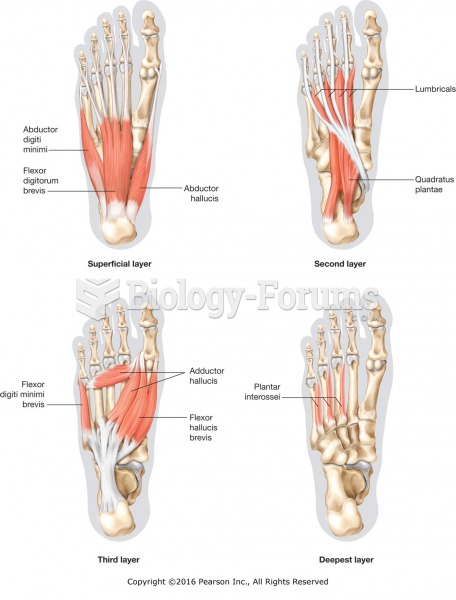|
|
|
On average, someone in the United States has a stroke about every 40 seconds. This is about 795,000 people per year.
According to the American College of Allergy, Asthma & Immunology, more than 50 million Americans have some kind of food allergy. Food allergies affect between 4 and 6% of children, and 4% of adults, according to the CDC. The most common food allergies include shellfish, peanuts, walnuts, fish, eggs, milk, and soy.
Allergies play a major part in the health of children. The most prevalent childhood allergies are milk, egg, soy, wheat, peanuts, tree nuts, and seafood.
Asthma-like symptoms were first recorded about 3,500 years ago in Egypt. The first manuscript specifically written about asthma was in the year 1190, describing a condition characterized by sudden breathlessness. The treatments listed in this manuscript include chicken soup, herbs, and sexual abstinence.
Throughout history, plants containing cardiac steroids have been used as heart drugs and as poisons (e.g., in arrows used in combat), emetics, and diuretics.
 Laparoscopy. A lighted endoscope specialized for insertion into the abdomen, called a laparoscope, i
Laparoscopy. A lighted endoscope specialized for insertion into the abdomen, called a laparoscope, i
 Rhythmic compression to gluteal muscles using the fist. Press into the large gluteal muscles moving ...
Rhythmic compression to gluteal muscles using the fist. Press into the large gluteal muscles moving ...





